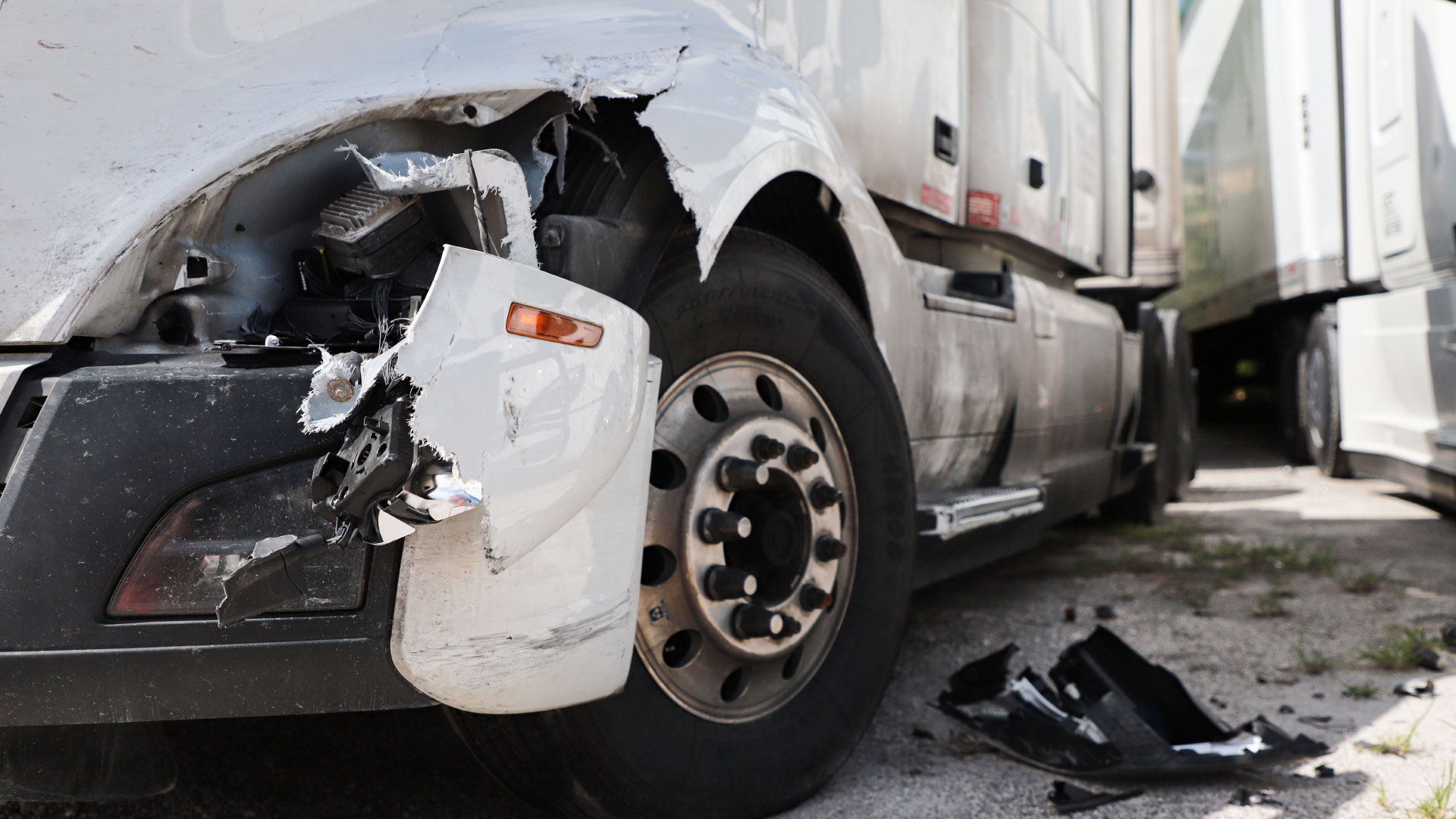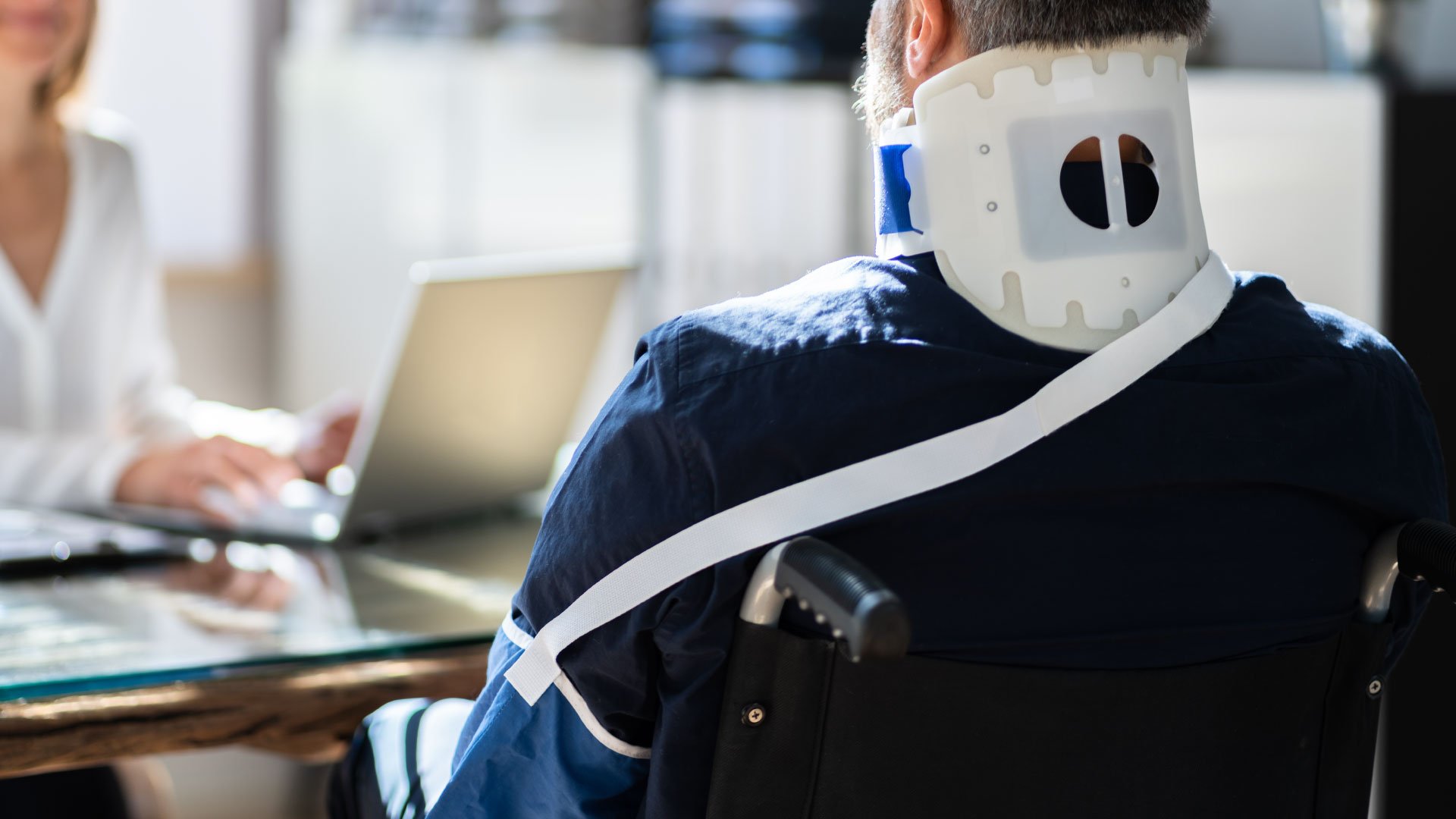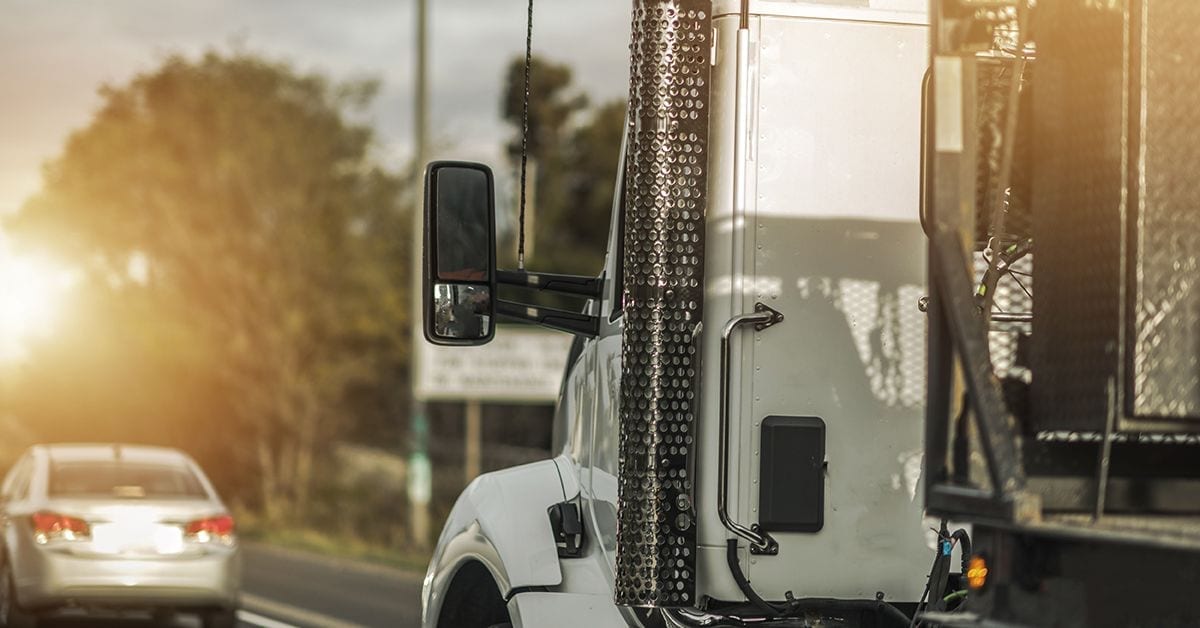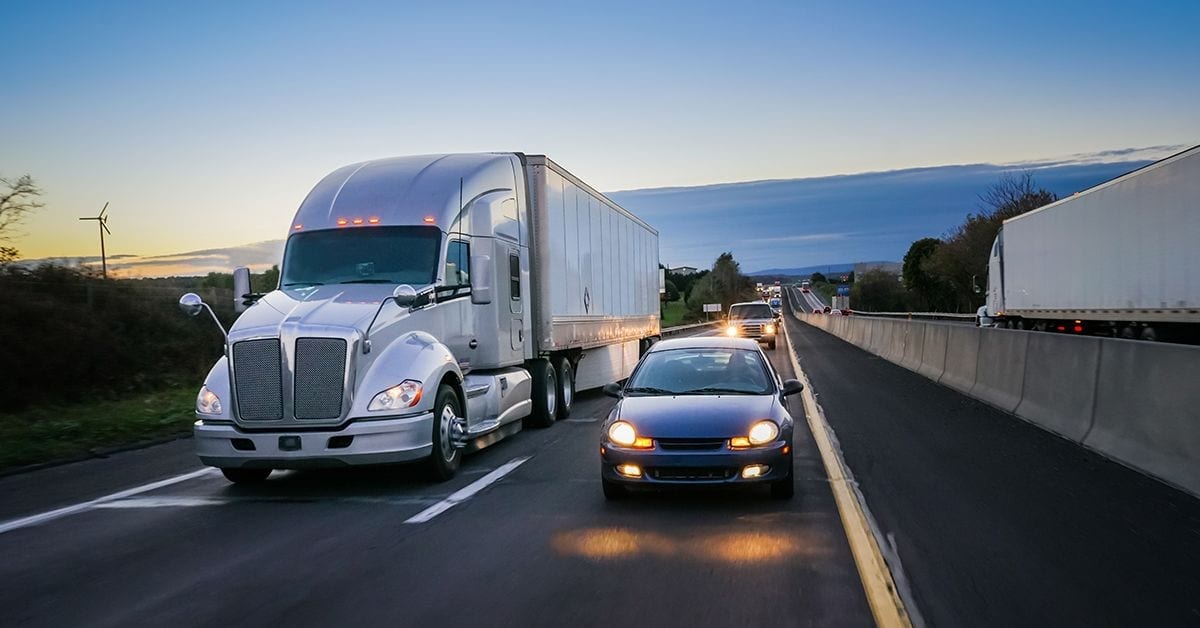Who Is Liable in a Truck Accident in Georgia?
- Key Takeaway #1: Liability in a Georgia truck accident often extends beyond the driver to include trucking companies, vehicle owners, cargo loaders, manufacturers, and even government entities.
- Key Takeaway #2: Proving fault requires fast action, thorough investigation, and access to critical evidence like black box data, driver logs, and maintenance records.
- Key Takeaway #3: Working with an experienced truck accident attorney can help uncover all responsible parties and maximize your compensation by building a clear and complete case.
Untangling liability after a commercial truck crash is complicated. Fault might be shared between the driver, the trucking company, the vehicle manufacturer, and even cargo loaders or a government agency—and identifying who played what role is the key to securing fair compensation.
A skilled attorney like ours at M. Austin Jackson Injury Lawyers can help. We’ve seen dozens of accidents involving these 80,000-pound trucks, and we know how to sort out who’s to blame and tell a clear story of what happened to maximize your compensation.
If you’ve been in an accident with a commercial truck in Georgia, reach out to our compassionate truck accident attorneys for a free consultation, or read on to learn more.
Why Truck Accident Liability Is More Complex Than Car Accidents
Truck drivers and the companies that employ them are subject to a strict set of rules, many of them outlined by the Federal Motor Carrier Safety Administration (FMCSA). These regulations cover everything from how long a driver can be behind the wheel to how cargo should be secured.
Because of these added layers, there are often more opportunities for negligence—and more parties who may have played a role in an accident.
On top of that, commercial trucking involves a web of business relationships:
- The driver may be an employee, contractor, or something in between.
- The truck may be owned by one company, operated by another, and carrying freight for a third.
- Maintenance may be outsourced, and cargo may be loaded by a different company entirely.
In short, defining liability after a big truck accident can be a puzzle, and a skilled attorney can help track down which pieces fit where.
Potentially Liable Parties in a Commercial Truck Accident
A thorough investigation is crucial after a truck accident. The more severe the injuries and damage, the more important it becomes to identify every responsible party and every available insurance policy that could help cover your damages.
Here’s a look at who might be liable for a truck accident in Georgia.
The Truck Driver
Truck drivers are often the first place investigators look. Common causes of driver negligence include:
- Speeding or reckless driving
- Driving under the influence
- Fatigue, especially when hours-of-service rules are violated
- Distracted driving, such as texting or using navigation apps
- Inexperience or inadequate training for the specific vehicle or route
Even experienced drivers make mistakes—but when those mistakes lead to serious injuries or fatalities, they can and should be held accountable.
The Trucking Company
Trucking companies can bear responsibility in multiple ways.
First, they may be held vicariously liable for their employee’s actions: so if a driver causes a crash while performing their job duties, the company is responsible. But in many cases, companies are directly negligent too.
A major area of concern is hiring and training. Some companies rush drivers through inadequate onboarding processes, or fail to verify their licenses and prior violations. When companies ignore red flags in a driver’s record—like DUIs, past accidents, or medical conditions—they knowingly put others at risk.
Additionally, many trucking companies push drivers to meet unrealistic delivery schedules, encouraging violations of federal hours-of-service rules. When drivers are pushed beyond their legal limits, the risk of fatigue and harmful or fatal errors skyrockets. Companies may also cut costs on maintenance, skipping critical inspections or putting off repairs that should have been made long ago.
This pattern of systemic neglect can emerge in post-crash investigations. That’s why it’s so important to look beyond the driver and dig into the practices of the employer.
Remember, in many cases, the person behind the wheel may be partly to blame, but an employer created the conditions that made the crash possible—and they should be held accountable.
The Truck Owner (If Different from the Trucking Company)
Sometimes, the truck is leased. If the owner failed to conduct regular inspections, maintain brakes, tires, or other systems, or address known mechanical issues, they may share liability for the accident.
This is particularly common in long-haul scenarios where companies lease trucks from fleet operators.
Cargo Loaders and Shippers
When cargo shifts during transit or falls off the vehicle, it can cause catastrophic crashes. Improper loading may result in top-heavy trucks that tip, unbalanced loads that reduce braking control, or cargo that spills into traffic.
The companies responsible for loading freight must follow specific weight distribution and securement guidelines. If they cut corners, they can be held accountable.
Truck Manufacturers and Parts Suppliers
Sometimes, a truck accident isn’t due to human error at all. Instead, it’s the result of a defective part. Common culprits include:
- Brake failures
- Tire blowouts
- Steering system defects
- Lighting or signal malfunctions
When faulty equipment plays a role, manufacturers or suppliers may be liable under product liability laws. If they produced and sold a faulty part, they may bear responsibility for the crash.
Government Entities
Not every dangerous situation is caused by the vehicle or its operator.
If, for example, a road was poorly maintained, signage was missing or obscured, or a highway design flaw contributed to the crash, then a city, county, or state government agency may be partially at fault. Claims against government entities follow special rules and tight deadlines, so fast legal action is critical.
Our skilled personal injury lawyers will ensure you meet all the key deadlines and stay on top of your claim.
How Liability Is Determined in Georgia Truck Accidents
Determining who’s responsible after a truck accident is a layered process. It starts with gathering evidence but goes far beyond surface-level documentation.
Experienced truck accident attorneys know how to act quickly to preserve evidence before it’s lost. That includes filing legal notices to preserve black box data, requesting maintenance logs, and subpoenaing dispatch records. These steps are critical, because some companies may try to clean up or erase incriminating evidence in the days following a crash.
Experts play a key role here:
- Accident reconstructionists analyze the scene, vehicle positions, and damage to model how the crash occurred. Evidence can be fleeting at a crash scene, so it’s important to have experts on site quickly to uncover information that might disappear after a few days.
- Mechanical experts review service records and inspect vehicle parts for evidence of failure or tampering.
- Regulatory consultants assess whether the trucking company was in compliance with federal safety rules.
All of this builds a comprehensive liability picture that’s often far more complicated than what a police report shows.
The Role of Police Reports and Accident Investigations
Police reports are often helpful but incomplete. They document basic facts (weather, location, whether citations were issued, etc.), but they don’t always identify the deeper causes of an accident. That’s where private investigations come in. With the right legal team, truck accident victims can uncover the full truth.
The Importance of Black Box Data and Electronic Logging Devices
Most commercial trucks now have on-board systems that track driver behavior and vehicle operation. These include:
- Electronic Logging Devices (ELDs), which record drive time and breaks
- Black boxes (Event Data Recorders), which store data like speed, brake use, and last-minute inputs before a crash
These digital records provide hard evidence, which is critical for showing whether the driver was fatigued, speeding, or in violation of regulations. Many times, there is also video from inside the cab of the truck, and a good truck accident lawyer will uncover it.
Steps to Take After a Georgia Truck Accident to Protect Your Claim
If you’ve been in a truck accident, taking the right steps early on can make all the difference in your recovery, both physically and financially. Here’s what to do:
- Call 911 and seek emergency medical help.
- Document the scene if you’re able by taking photos of vehicles, road conditions, and injuries.
- Get contact information for the truck driver, witnesses, and responding officers.
- Avoid making statements to the trucking company or its insurer. Don’t admit fault or speculate.
- Seek medical care, even if you feel okay. Adrenaline can mask serious injuries, and medical reports are a vital piece of building a strong case.
- Contact a truck accident attorney before speaking with any insurance adjusters or signing anything.
Truck companies act fast to minimize their liability. You should have someone just as experienced acting on your behalf, advocating for you during a difficult time.
Why You Need an Attorney Experienced in Truck Accident Cases
Truck accident claims demand a different level of legal expertise. Often, you’re going up against corporate defense teams, complex regulations, and insurers with deep pockets.
Truck accident litigation requires:
- Deep knowledge of federal trucking regulations
- Access to industry experts and investigators
- Legal strategies to pursue multiple liable parties
- The ability to preserve critical digital and physical evidence
An experienced attorney will know how to investigate every angle, secure and interpret technical evidence, and hold all liable parties accountable. They can prove who was at fault and share your side of the story, all on the way to getting you the compensation you need to recover.
How Our Attorneys Handle Truck Accident Cases
At M. Austin Jackson Injury Lawyers, we know the difference a strong legal team can make after a truck accident. As a local Augusta law firm, we prioritize:
- Immediate action to preserve evidence and document the scene
- Engagement of experts, including accident reconstructionists and trucking safety consultants
- Thorough review of black box data, logbooks, and vehicle maintenance records
- Pursuit of all liable parties to ensure no insurance resource is left untapped
- Full assessment of damages, including medical bills, lost wages, pain and suffering, and future care needs
And throughout it all, we treat you like friends—because we’re proud to call Augusta home, and we take care of our neighbors in the CSRA.
If you or someone you love has been injured in a commercial truck accident, get in touch with us for a free, no-obligation consultation. We’re here when you’re ready.
Frequently Asked Questions
Can I sue the trucking company if their driver caused my accident?
Yes. Trucking companies can be held liable for their employee’s actions under a doctrine called “vicarious liability.” They can also be held responsible for their own negligence in hiring, training, and supervision.
How long do I have to file a truck accident lawsuit in Georgia and South Carolina?
Generally, you have two years from the date of the accident to file a personal injury claim in Georgia. In South Carolina, it’s three years. However, it’s best to speak with a lawyer as soon as possible to preserve evidence.
What if the truck driver who hit me was an independent contractor?
Liability may still extend to the trucking company or others involved. The label “contractor” doesn’t always shield companies from responsibility.
Can I still recover damages if I was partially at fault for the truck accident?
Yes. Georgia follows a modified comparative fault rule. As long as you’re less than 50% at fault, you can still recover damages—though your compensation may be reduced.
What types of compensation can I recover in a Georgia truck accident case?
You may be entitled to:
- Medical expenses (past and future)
- Lost income and reduced earning capacity
- Pain and suffering
- Property damage
- Punitive damages in cases of extreme negligence
An experienced truck accident lawyer will investigate all possible paths to compensation on your behalf.
M. Austin Jackson has more than a decade of experience helping his neighbors in Georgia and South Carolina receive justice and fair compensation after an injury. An Augusta native, Austin is honored to serve this wonderful community, and he prides himself on providing friendly, personal legal guidance for folks in the middle of a hard time.



